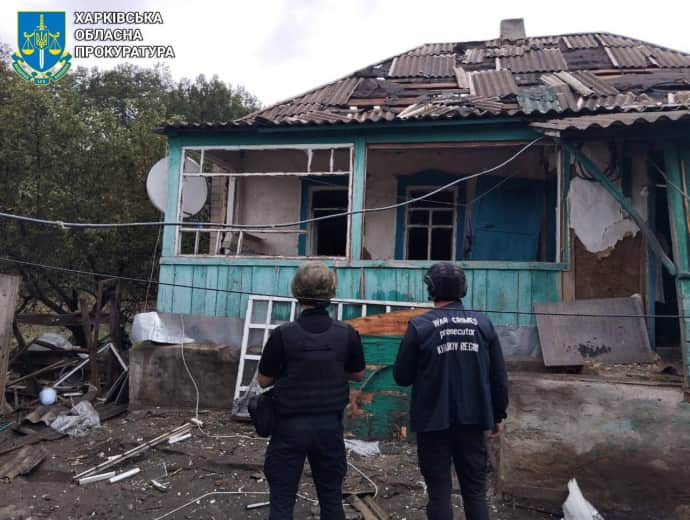Sudden Dismissal of CDC Vaccine Advisory Panel: Univ. Of Michigan Public Health, Medical Experts Can Comment | Newswise

Newswise — University of Michigan experts are available to weigh in on the decision by Secretary of Health and Human Services Robert F. Kennedy Jr. to remove all members of the CDC’s 61-year-old Advisory Committee on Immunization Practices. The following quotes may be attributed to them, or use the contact information below to reach them for interviews.
Abram Wagner, assistant professor of epidemiology and global public health at the School of Public Health, investigates vaccination programs. His research encompasses analyses of the impact of vaccine hesitancy, vaccine effectiveness studies and seroepidemiology surveys. A large focus of his work is on developing messaging to introduce a population to new vaccines while minimizing the development of vaccine hesitancy.
“For decades, the Advisory Committee on Immunization Practices has served as an independent, evidence-based body guiding U.S. vaccine policy to protect children, the elderly and people with serious chronic diseases,” he said. “Vaccines have historically transcended political divisions because of their cost-effectiveness and lifesaving impact. Undermining ACIP not only politicizes public health but also erodes the institutional expertise that has safeguarded generations of Americans.”
Wagner will serve as moderator at the Society for Medical Decision Making’s event “Understanding the ACIP: Evidence, Policy, and Practice in U.S. Vaccine Recommendations.” The June 30 event is open to the public and was scheduled prior to RFK. Jr.’s announcement.
Contact: Abram Wagner, [email protected]
Pamela Rockwell is a professor in the Department of Family Medicine at the Medical School and co-chair of the Immunization Committee at Michigan Medicine. She chairs the Michigan Advisory Committee on Immunizations and was the former American Academy of Family Physicians’ liaison to the ACIP.
“The HHS secretary’s decision to remove all 17 members of ACIP creates public confusion and uncertainty in the scientific community and undermines vaccine safety and public health,” she said. “This political interference to alter ACIP will further erode public trust and confidence in the science and process of vaccine recommendations, distrust currently amplified by misinformation and untruths promulgated through social and other media and government officials who speak without supporting science-based data.”
Contact: Kara Gavin, [email protected]
Adam Lauring is professor and chief of the Division of Infectious Diseases at the Medical School. Since the beginning of the COVID pandemic, his laboratory has collaborated with large teams to study the genomic epidemiology of respiratory viruses and the effectiveness of vaccines against them.
“This move is something that will undoubtedly cause confusion and will ultimately be detrimental to public health,” he said. “The individuals who have served on ACIP are true experts in their field. They volunteer many hours to exhaustively review the available data and debate their recommendations.
“Contrary to Secretary Kennedy’s statements, rigorous conflict of interest rules have been applied to members. Physicians, pharmacists and other providers depend on the ACIP and its integrity for recommendations about how to best care for their patients. As insurers rely on ACIP recommendations to decide which vaccines will be covered, I am concerned that these changes may reduce access to vaccines across the board.”
Contact: Kelly Malcom, [email protected]
Emily Martin, associate professor of epidemiology at the School of Public Health, co-directs the Michigan Center for Respiratory Virus Research and Response and the Michigan Public Health Integrated Center for Outbreak Analytics and Modeling. Her work focuses on infectious diseases and respiratory viruses, including influenza, SARS-CoV-2 and RSV—and strategies to prevent and treat infection. She is also a core investigator for the CDC’s U.S. Influenza Vaccine Effectiveness Network, the CDC’s IVY network for hospital vaccine effectiveness and the NIAID Centers of Excellence for Influenza Research and Response.
“Secretary Kennedy’s comments greatly underestimate the amount of skill, training and highly specialized knowledge in vaccinology and epidemiology that is required to be a member of ACIP,” she said. “The members of the disbanded committee were among the top experts in the field and brought decades of experience in caring for children, young adults, older adults, patients with cancer and pregnancies, among much else.”
Martin implored action from Republican Sen. Bill Cassidy, who chairs the committee that oversees HHS and who voted to confirm Kennedy as secretary based on the promise that ACIP would be left intact and access to vaccines protected.
“(Cassidy) more than anyone should recognize the enormous challenge in reinstating this committee with new experts that are as qualified, and the damage to the nation’s public health that will result from the disruption to their work,” she said. “To do this now, when we are facing measles outbreaks at a level not seen in decades, is extremely concerning.
“The statements surrounding the HHS decision to remove the ACIP committee meetings contain a number of things that are factually incorrect. The meetings are posted online and anyone can listen to the discussions, held livestreamed in public view, where members openly debate all aspects of these vaccines. The care and rigor of these discussions and the reliance on scientific evidence is what has made the ACIP such a respected advisory body internationally. I am disheartened to see the work of the thousands of scientists that contribute to the evidence behind the recommendations disparaged in this way.”
Contact: Kim North Shine, [email protected]
A. Mark Fendrick, professor of internal medicine and of public health, heads the Center for Value Based Insurance Design and has led many studies on the impacts of preventive care services and the role of out-of-pocket costs in shaping patients’ decisions about seeking preventive care.
“The decision by Secretary Kennedy to replace all of the ACIP members has far reaching implications, since the vaccines recommended by the committee must be provided at no cost to most insured Americans. Removal of an ACIP recommendation would allow health insurers to impose cost-sharing on vaccines, and as a result, their utilization will likely decline. This could lead to increases in the number of cases of preventable illness, worsened health outcomes and more financial strain on an already stressed U.S. healthcare system.”
Contact: Kara Gavin, [email protected]




